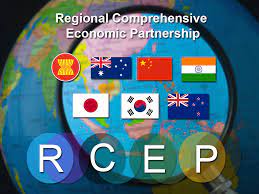To be or not to be
Will the Philippines be a signatory to the Regional Comprehensive Economic Partnership (RCEP) that becomes effective on Jan. 1, 2022? The pressure to do so is certainly there, but we believe it is much better not to be.
RCEP’s impact on our agriculture will not be a boon, but a bane. Reference will be made here to a consensus initially drafted by Raul Montemayor of the Federation of Free Farmers. It has 51 signatories from different critical sectors: farmers (e.g. Charles Avila of the Confederation of Coconut Farmers Organizations), fisherfolk (e.g., Pablo Rosales of Pagkakaisa ng Mga Samahan ng Mangingisda), workers (e.g., Rodolfo Capoquiam of the National Trade Union Center), rural women (Luz Bador of Pambansang Koalisyon ng Kababaihan sa Kanayunan), international trade (e.g., Mars Mendoza of Fair Trade Alliance), rural development (e.g., Romeo Royandoyan of Centro Saka), regional development (e.g., Joseph Purugganan of Focus on the Global South), multinationals (Ruth Novales of Nestlé, Philippines) and laity (Rouquel Ponte of the Council of the Laity of the Philippines), among others.
RCEP is the largest free trade agreement. It involves Asean (Association of Southeast Asian Nations) countries, as well as China, Japan, South Korea, Australia and New Zealand. These countries compose 30 percent of the world’s population (2.2 billion people), and 30 percent of global gross domestic product, ($26.2 trillion). India, which earlier expressed great interest in joining the RCEP, has decided not to join. They have stated they are not ready for RCEP, and it will create more harm than good for their people. Is the Philippines ready?
United stand
The position paper states: “We, the undersigned representatives of farmers, fishers, workers, civil society organizations and the private sector, unanimously oppose the ratification of the RCEP trade agreement, and urge the Senate to withhold its concurrence on the treaty.”
However, the signatories show openness to joining RCEP at the right time: “There is no urgency in joining RCEP today. We can always join later, when we have adequately understood the treaty’s ramifications and are ready to use RCEP membership to our advantage … Governments must thus exercise care and deliberation, so that trade agreements deliver on their promises, while minimizing harm to vulnerable sectors of society …We can continue negotiating with our Free Trade Agreement partners to secure additional advantages comparable to those contained in RCEP.”
This section calls to mind what happened to the Philippines when we agreed to join the World Trade Organization (WTO) in 1994.
While countries like Vietnam prepared well for WTO and used it to their advantage, we did not make the necessary arrangements and suffered. Because we agreed without the proper negotiation (akin to unilateral disarmament), the promised benefits of WTO never happened: annual 500,000 new jobs, P3.4 billion increase in exports, and a significant increase in agriculture gross value added. The opposite happened. From being a net food exporter, we now have the dubious distinction of being the only net food importer among our Asean neighbors.
The inconvenient truth is that we have a very weak agriculture sector. Ratifying RCEP now means that 75 percent of our 1,718 agriculture tariff lies will be set to zero, and 15 percent of our tariff lines will be subject to tariff reduction, while only 9 percent are exempted from tariff change.
We had asked the Department of Agriculture (DA) to identify the RCEP’s threats on our agriculture during the Nov. 5 Senate international relations committee hearing. We expected these threats to be identified in a scheduled DA meeting before the Dec. 3 Senate hearing. However, we were told then they would be identified at the hearing itself. At that hearing, according to agriculture stakeholders, the DA did not accurately identify the significant RCEP threats to agriculture, and therefore did not have the necessary measures to address these threats.
Missing consultation
This is the main problem. There has been no meaningful RCEP consultation with the agriculture private sector. Without this, the Senate must not ratify the RCEP now.
According to international trade experts, the most significant RCEP danger is that critical safeguard measures allowed by the WTO and our own law (Republic Act No. 8800) to stop the massive influx of subsidized imports can no longer be used. RCEP limits safeguard levels, and prohibits us from filing cases against certain countries. WTO and our law pose no such limitations.
This is the position paper’s main point: “Let the Senators send to the executive branch a strong unequivocal message to observe the constitutional mandate on stakeholders right to effective consultation and to thoroughly review the country’s commitments under the RCEP before asking the Senate to entertain further proposals on trade liberalization.”
Regarding the starting question, “not to be” should be the Senate decision on a premature RCEP ratification. Otherwise, ratification will be a harmful bane rather than an illusory boon for our already ailing agriculture. INQ The author is Agriwatch chair, former Secretary of Presidential programs and projects and former undersecretary of DA and DTI. Contact is Agriwatch_phil@yahoo.com.




















